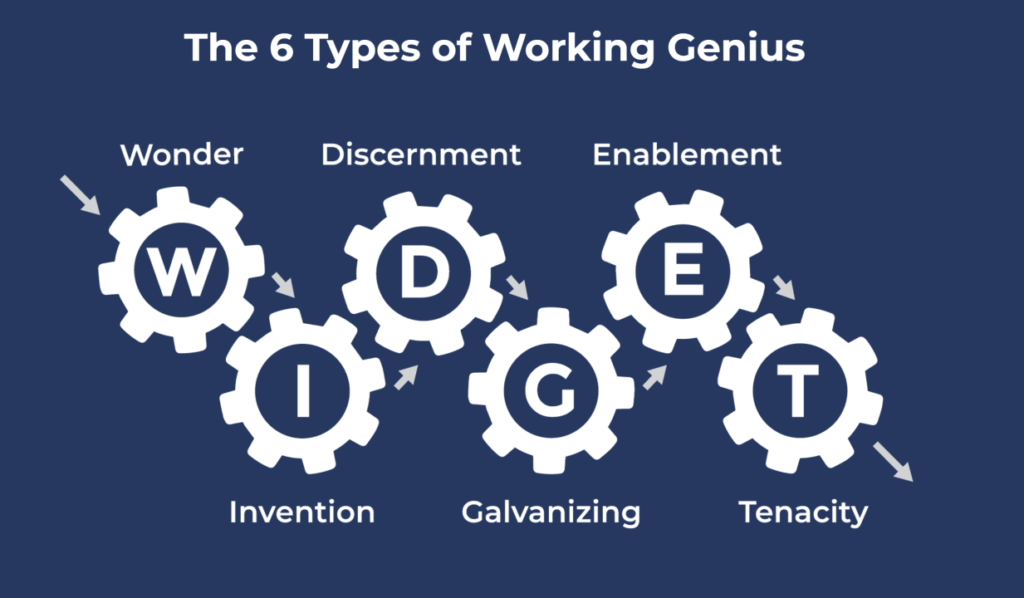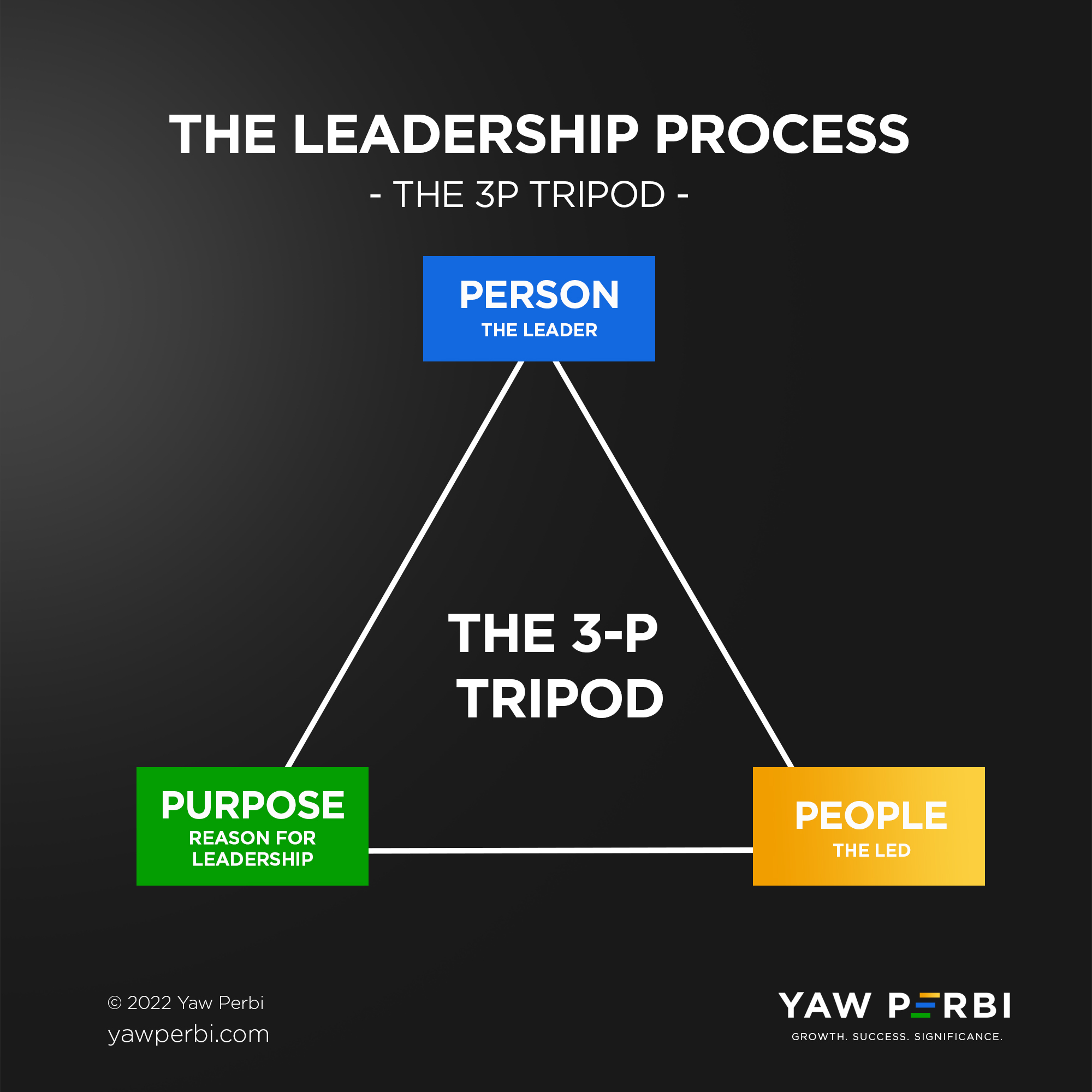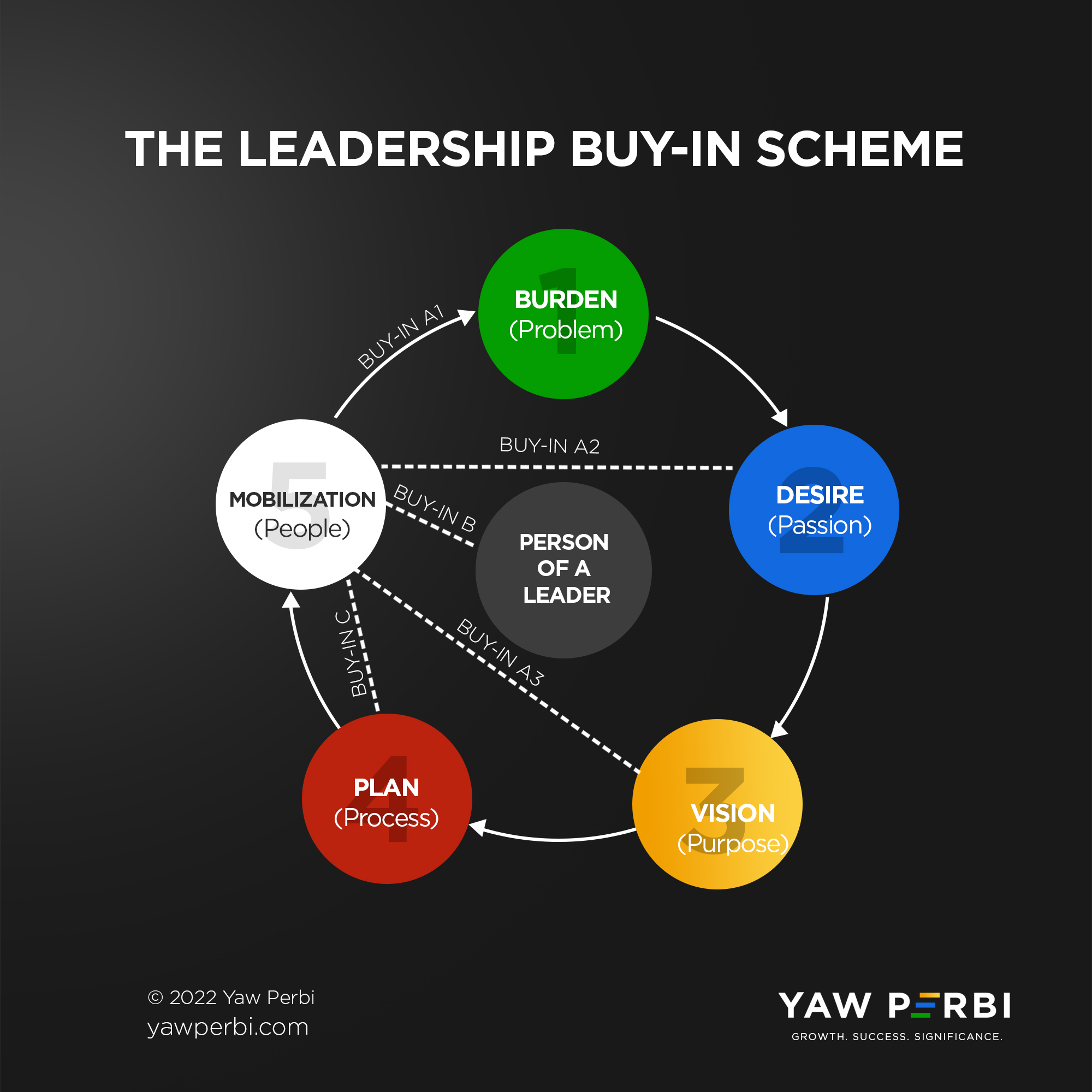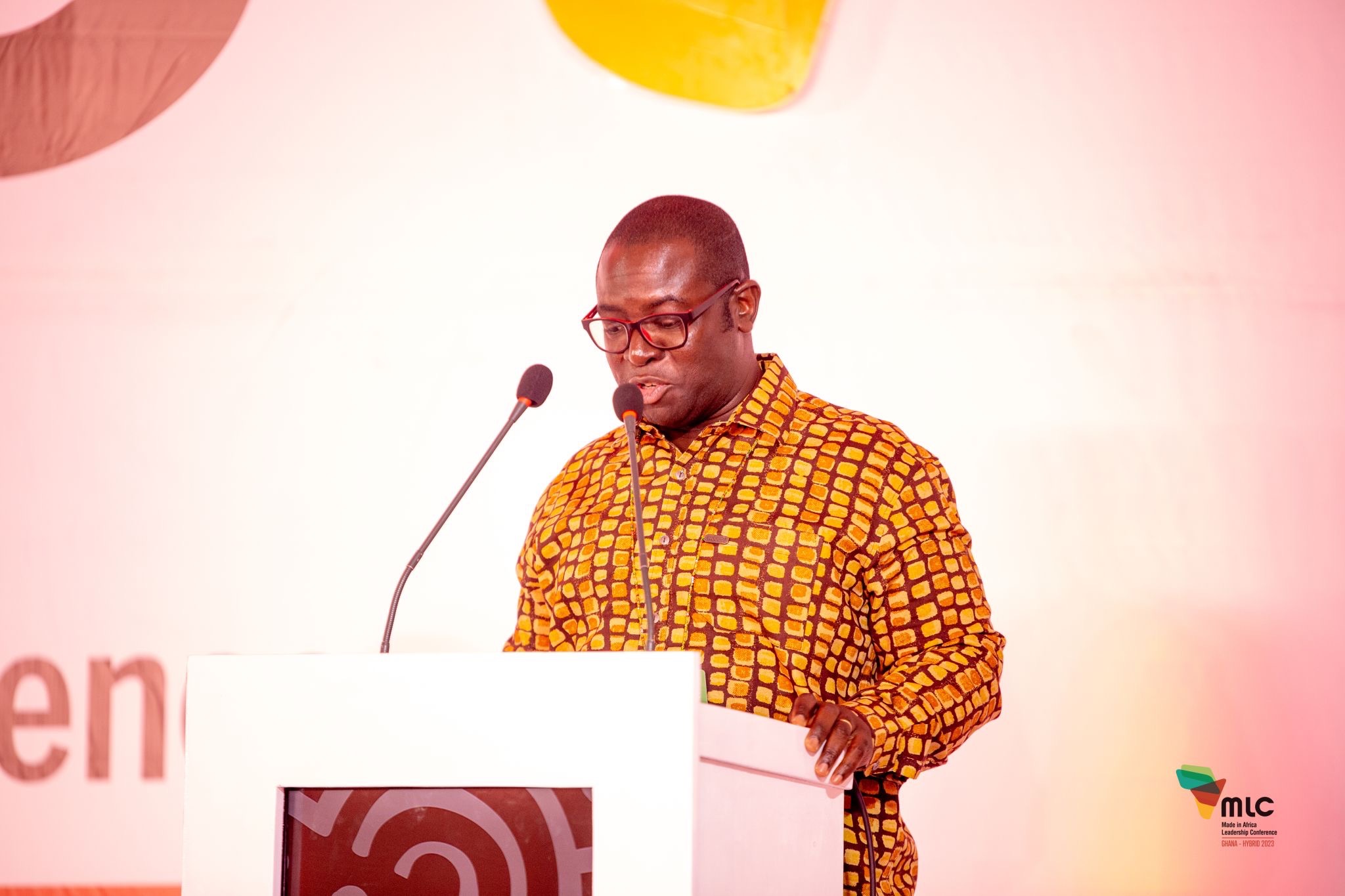
Sans Leadership–So Much to Lose, Too Much to Lose.
The following was shared as a TED-like talk to open the Made in Africa Leadership Conference by BCA Leadership on June 14 at the Marriot Hotel, Accra, Ghana.
My uncle died. My mom’s youngest brother. He came over to Ghana from the United States, where he had lived for decades, and fell ill. He died in the very hospital I worked in at the time. In fact, he died on my ward. But I can swear it wasn’t his disease that killed him. It was leadership, or rather the lack thereof. Leadership is too important for doctors not to have it.
Some of the most important things in life are not taught in school, like leadership. When some of my friends from university got into government I did exhort them: “Nobody taught us Jack about leadership. LEARN LEADERSHIP! CONTRACT COACHES! Leadership is not just caught; it is taught.” Did they listen? Ha!
Ironically, communal, national, continental or even global leadership, is a deeply person-al thing. It takes deeply transformed leaders to deeply transform society. Authentic leadership begins with aligning what goes on in a leader’s head and heart with True North. Leadership principles or True North are no respector of persons—red or yellow, black or white.
Two days from now, we will be officially launching the 20th anniversary celebration of The HuD Group, a holistic leadership organization started by nine young Africans in Accra. From one country in West Africa, it now has presence in 24 countries, on all six continents. Out of Africa to the Rest. From a former Rwandan refugee now in executive leadership in Uganda to a former child soldier in Sierra Leone now a high-ranking bank official in his homeland, to a Chinese-Canadian who we trained via Skype when she was an international medical student in Australia, a lot of transformation and impact has been achieved but in Ghana in particular I feel much of our gains have been eroded by not giving adequate attention to political leadership.
So today is the first of two important occasions this week where I will be drumming home this point with all my heart, liver, spleen and intestines: “Leadership is too important to leave it to politicians alone.” AND with 90% of African businesses being SMEs, creating 60-80% of our jobs and accounting for 40% of our GDP, what we do here at MLC this week for African leaders and African leadership is wildly important.
When two 14-year old stowaways from Guinea, Yaguine and Foday, froze to death in the landing gear of an Airbus 330 from Conakry to Brussels, they had on them a hand-written letter labelled: IN CASE WE DIE… to the Messrs. members and officials of Europe.
They said, among other things, “We have the honor and pleasure and great confidence in you to write this letter … we appeal to your solidarity and kindness for help in Africa. …we, African children and youth, ask you to create a great, efficient organization for Africa to allow us to progress. …we want to study and we ask you to help us in Africa to study to be like you.”
You should find and read the whole letter here—it will thaw and tear your heart. And that was 24 years ago. Has anything changed?
It’s time for Leadership Made in Africa that makes Africa work for Africans. BEFORE WE DIE. Yes we can, partnering and collaborating to reimagine and reform the Africa that we want! Twende! Let’s go! Let’s do this!

To Compete or To Complete? That is the Question.
Dr. G. Ayorkor Korsah (née Mills-Tettey) and I shared many hearty laughs at the VIP lounge after Ashesi University’s impressively inspiring commencement ceremony last Saturday, June 3, 2023. She is a Senior Lecturer in Computer Science and Robotics, and as department head, Computer Science & Information Systems, she was in her element dolling out degrees to deserving graduates. But we have a 28-year history of rivalry.
This wasn’t our first meeting. Nearly three decades ago, in 1995, we were impassioned opponents. Each of us was part of a trio representing our high schools in the semi-final of the Brillant Science and Maths Quiz on national television. Brillant was what it was called, yes, no typo there. That was the name of the blue bar soap by Unilever that was the title sponsor OF the competition. Much has changed since then. National Science and Maths Quiz, it’s now called. Very appropriate. Prime Time was in its prime, producing this feast of brilliance. They seem to have kept their shine, now in the hands of the next generation of Mensah-Bonsus.
THE LADIES WERE LOVED
Our battle was held and filmed at the Great Hall of the University of Ghana, Legon. Technically, this should’ve been a ‘home match’ for me, in my own territory, since the venue was barely a mile from my home, No. 14 Legon Hill. But no. Everyone was rooting for the über smart all-ladies team from Wesley Girls. Can you blame them? Even now they would be a delight; how much more in those medieval ages of STEM in Africa. Come to think of it, the now-ubiquitous ‘STEM’ term for Science, Tech, Engineering and Math had not even been cooked yet. The STEM acronym was only introduced in 2001 by scientific administrators at the U.S. National Science Foundation (NSF). Girls in Science were hallowed in the 1990s. Even I admired them, but my mission was to win for my school. No distractions.
My Achimota School team was made up of three boys, the three musketeers, although we are the first co-ed public school in the country as far back as 1927 and had science girls who rocked. Needless to say, the competition against the Cape Coast chics was fierce. We had both earned our way to the penultimate in the southern zone.
We inflicted what is arguably the most painful defeat Geyhey has ever suffered at the science and maths quiz. It was veeery close. Even the camera crew were downcast when the celebrity girls lost, visibly disappointed. We made enemies that day. Some couldn’t even hide it.
SOME OTHER LADIES, SOME OTHER TIME
But as it turned out: it’s not the whole word that hated us. Some girls loved us. I was the recipient of umpteen letters of adulation from young ladies all over the country. They happily introduced themselves, sometimes with atrocious photo inserts, and poured their admiration on me—about my intellectual prowess among other things which will distract from the point of this article. Now I’m not sure all of it was appropriate for seventeen.
Even the Weygeygey girls became friends later when things cooled down. After all, “if you can’t beat them; join them,” as they say. That’s how I ended up with the various names in that year group, some of whom became colleagues at the University of Ghana Medical School, as friends. Zanetor Rawlings, first daughter of the then Flight Lieutenant-retired president of Ghana, even visited me in Achimota School at some point. Like me, she would later pursue Medicine too; but in Ireland. I once warned her at a party in Nana Ama Barnes’ home on Legon Campus that if she dared ended up schooling outside Ghana after her revolutionary dad had messed up (yes, teenagers are fearless!) our educational system so, I would be really mad. I guess I’m still mad. A little. She has since returned and been admiringly serving as a Member of Parliament for the Korle Klottey constituency of Accra. In any case, seeing affliction metted out to a certain young man who hang around her at the time, involuntary hair-shaving at the Osu Castle and all, it might have been providence that I stayed at arm’s length.
NOTHING BUT ADMIRATION AND RESPECT
But I digress. Back to the main lady Gertrude, as we called Ayorkor then. She was and is brilliantly brilliant. We only beat her team by strategy and a stroke of luck. Call it grace, if you like. Those girls were on fire! Ayorkor, after 1995, went on ahead to pack up four degrees including two Bachelor’s, a Master’s and a PhD. Dr. Korsah grew up in Ghana and Nigeria, and as a child, she wanted to be an astronaut and an engineer. Ayorkor didn’t join the majority of us that continued to Ghanaian tertiary institutions but went to Ivy League Dartmouth to major in engineering. She attended Carnegie Mellon University for her doctoral work in computer science, obtaining a PhD in 2011.
Ayorkor Korsah is all-round passionate about the artificial intelligence (AI), robotics, algorithms, and programming courses she teaches on the Ashesi Hill but so is she about expanding robotics education in Africa for every Kofi and Amma. That’s why she co-founded the African Robotics Network (AFRON) over a decade ago with a robotics professor at the University of California, Berkeley, Ken Goldberg.
Anyele my wife and I really found a common sweet spot with Ayorkor last Saturday when we coincidentally discovered our common passion for literacy. Being someone who has shared with the BBC how humans and machines can collaborate and combine their strengths, Ayorkor once, over a dozen years ago, experimented with an automated reading tutor in the quest to improving child literacy in Africa. She has a paper on it in the Information Technologies & International Development journal, vol. 6 no. 2, 2010. We are keen to collaborate with her and her bright Ashesi students at our EdTech company, Perbi Cubs, for bigger, brighter and better outcomes for Africa’s precious cubs.
NOT A BOUT
Ayorkor beat me to full-time lectureship and will most likely beat me again to professorship (she so deserves it). But as she, Anyele and I continued our hearty conversation, including recruiting some of her students to practice what she teaches at our Edtech, we got to know she has two little ones of her own, younger than our last two. And we have seven. We beat her to that, fair and square. She even just married, in light of our sixteenth year, and transitioned from Mills-Tettey to Korsah.
Enough of these beatings! Really we’re all grown now and know, for sure, that life isn’t a race against each other. Nor is it about a bout. Rather than compete like we did in our teens, we now learn to complete one another in our adult years for the greater good—the Good Society. In lockstep, we will keep producing holistic emerging leaders, formally like Dr. Ayorkor Korsah does with degrees at Ashesi and informally and semi-formally like I do at The HuD Group. Ashesi turned 20 last year and we turn the same this year. Patrick Awuah, our mutual founding friend of Ashesi will be keynoting at The HuD Group’s presser on June 16, 2023. I was telling him that maybe I should’ve started a Uni too instead of going the CSO (Civil Society Organization) route. But nay, to each one their own. And we compliment, collaborate and complete each other as we all strive hard and long towards the Africa we want.
And as if by divine design, one of the Presec folks who beat our Achimota team in the finals of the Brilliant Science and Math Quiz 1995 southern zone competition ended up as my Biological Sciences course mate and even my room mate at Legon Hall, University of Ghana. We both competed for the few slots at med school available to our Leviathan-sized cohort and made it–from the same room!
There’s a time to compete and a time to collaborate. For me, to complete and not compete today as professional pals and fellow family framers of the same generation is a no-brainer. Here’s to answering life’s real tough questions and quizzes together. Congratulations, Dr. Ayorkor Korsah, for continually raising the bar.
Post script
And oh, Anyele and Ayikai, Ayorkor’s engineering whiz kid of a younger sister, have been tight friends for a quarter-of-a-century, going way back to their Wesley Girls days.
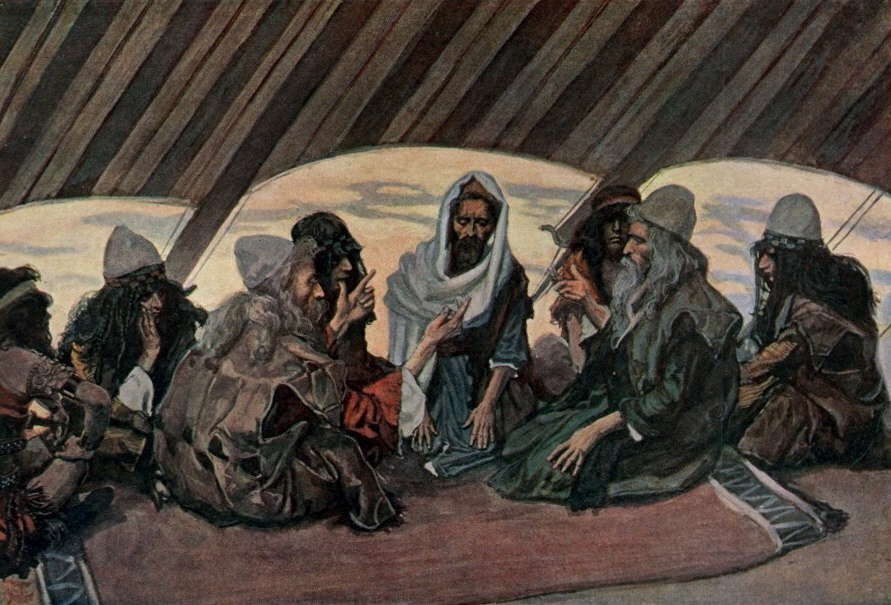
Competence is Character.
Photo credit: Jethro and Moses, watercolor circa 1900 by Jacques Joseph Tissot (1836–1902), courtesy of Wikimedia.
While a lot of #leadership thinking is that leadership comprises #competence AND #character, for others like Jethro of Midian, competence IS character. Discuss.
For the Eager Beaver:
“Listen now to me,” Jethro advised Moses his son-in-law regarding leadership delegation, “Select capable men from all the people–men who fear [revere] God, trustworthy men who hate dishonest gain–and appoint them as officials over thousands, hundreds, fifties and tens” (Exodus 18). Jethro, also known as Reuel, was a Kenite shepherd and priest of Midian.

FROM PROFESSOR TO PICKETER: The Lost Generation and the Missing Money
Ghana is neither worth living for nor dying for. That’s how many feel at the moment. Honestly. Think about this: I’ve known Uncle Kweku since his graduate student days on the University of Ghana campus. I was only a lad then. He would later complete his graduate studies, an MPhil in linguistics, and top it up with a PhD from Oregon, USA.
After an illustrious career as an academic (see his brief bio here on the University of Ghana website) he not only retired as a full professor but even served as Pro Vice-Chancellor of Ghana’s premier university. What do we find the illustrious son of Ghana doing these days? Picketing on the premises of Ghana’s Ministry of Finance to demand that the government exempts his and fellow pensioners’ bonds from being sequestered in the dubious Domestic Debt Exchange (DDE) programme. I know for a fact that virtually all of Prof. Kweku Osam’s pension monies are in these bonds. Ei! A former Chief Justice also picketing alongside the other day is reported to have said, “I am over 70 years now. I am no longer government employed, my mouth has been unguarded, and I am talking, and I am saying that we have failed.”
“BACK TO THE FUTURE”
When Uncle Kweku overtly verbalized to the media in an interview on one of the picketing days that he would dissuade his children from ever investing in the Government of Ghana’s financial instruments because “they are risky,” he seemed to have read my mind. Seriously. For while I agree that it is despicable to draw the aged into this DDE debacle and punish pensioners who have planned well for their future and lent their own monies to government to work with, I have an even greater concern for the young people of the country who might take decades to recover from this rude shock. It has taken years to grow a savings and investment culture in Ghana.
As previously started in an earlier article on this matter, “I am pained that, ‘The fathers have eaten sour grapes, and the children’s teeth are set on edge’ (Ezekiel 18:2). For over 20 years now, The HuD Group and I have championed a culture of savings and investments in Ghana, and had the JOY of seeing thousands heeding the call, especially young people.” I recently met one of the young men I used to travel the country with to inspire and teach young people to form investment clubs and start investing. He’s currently the managing director of a major investment company in Ghana. He intimated how this whole DDE disaster made him shed several kilograms over a month, being at the receiving end of verbal and other forms of abuse from frustrated and fearful investors. At the time we spoke, people were withdrawing an average of 100 million Ghana Cedis each day from his outfit. He had already dispatched 2.5 billion Ghana Cedis when we held our conversation.

A zoom in on Prof. Kweku Osam, picketing at the Ministry of Finance, with his fellow pension bondholders
BACK TO THE PENSIONERS
So what exactly are we working for? The calibre of pensioners-turned-picketers is disheartening: doctors, engineers, civil servants… If retired professors and chief justices are protesting, what about the no-namers and the many who are too old or too ill to hit the streets? I am privy to a WhatsApp message Prof. Kweku Osam sent that was meant to be just informational, but ended up being very transformational for me:
The last time I took part in a public demonstration against a government of Ghana was in May 1983, as a fresh graduate student. That was when students in the country rose up against Rawlings and his PNDC. Today, God willing, I’ll join fellow Pensioner Bondholders to protest at the Ministry of Finance. The government should leave Pensioner Bondholders alone. Touch not the Pensioner Bondholders.
Think about it: Uncle Kweku began his working life protesting the government. Forty years later, he is ending his working life with yet another anti-government protest. Virtually all his lifesavings is now being held at ransom by a government that has misled and mismanaged her affairs, Covid-19 and Russia-Ukraine notwithstanding. After forty years of wandering in the wilderness between the 1983 protest and the present one on the eve of our sixty-sixth independence commemoration, Ghana itself is a pensioner by age, without much to show for it. We’ve got to do better for our people, old and young alike. Seriously.
Prof. Osam’s generation–my parents’ generation–is the same one the current Finance Minister, Uncle Ken, belongs to. It is the same crop of people who plotted military coup d’etats a generation ago in their youth. Now they won’t exit quietly either, not without a financial coup de grace. With trepidation, dare I call them the lost generation? And they did not only lose themselves and their way, they lost money–theirs and ours.
But to what will my generation and those following rise, having clearly observed that Ghana is not worth living for and Ghana is not worth dying for? That’s how many feel at the moment. Honestly. Think about it.
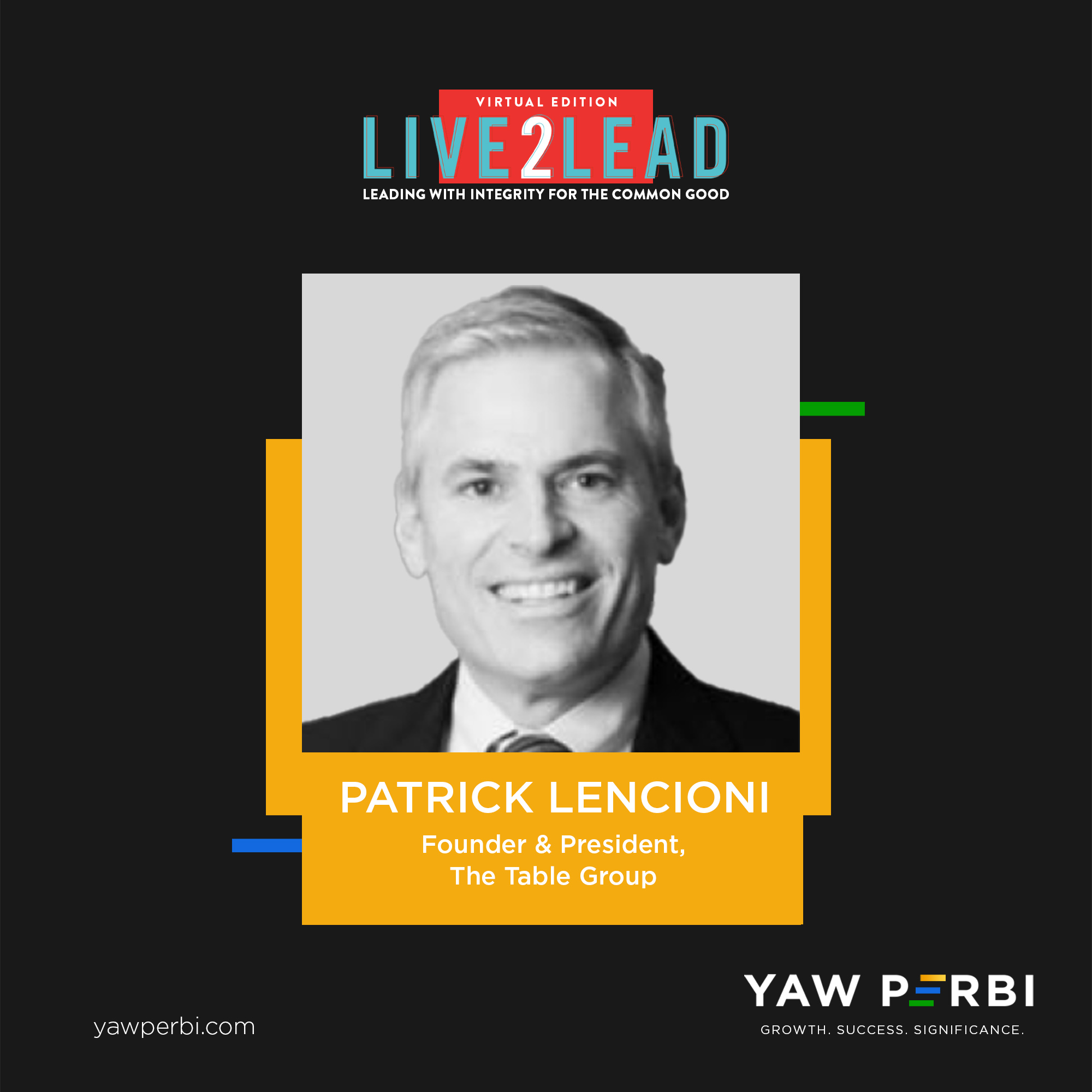
Meet Patrick Lencioni, the Workplace Guru.
There’s no one I enjoy hearing about teams, meetings and workplace dynamics like Patrick Lencioni. Patrick is an American author of books on business management, particularly in relation to team management. He is best known as the author of The Five Dysfunctions of a Team, a popular business fable that explores work team dynamics and offers solutions to help teams perform better. On a recent trip to southern and eastern Africa, his cautionary tale to CEOs published in a book by the title The Motive, was my jolting companion. It brought me back to my senses as CEO of a few enterprises.
Lencioni is Founder and President of The Table Group, a management consulting firm specializing in executive team development and organizational health. As a consultant and keynote speaker, he has worked with senior executives and executive teams in organizations ranging from Fortune 500s and high tech start-ups to universities and non-profits. He also gives talks on leadership, organizational change, teamwork and corporate culture. He is frequently interviewed for national media including features in the Wall Street Journal and USA Today.
SIX TYPES OF WORKING GENIUS
At the annual John Maxwell Live2Lead conference last week–the Ghana site hosted nearly 600 leaders LIVE! with thousands more to benefit through rebroadcasts–we heard from Patrick Lencioni about his groundbreaking new model that provides a deeper understanding into our workplace and team dynamics.
The six types of working geniuses together form the word WIDGET, symbolized by six gears working perfectly synergistically well together. W is the genius of Wonder, I the genius of Invention, D the genius of Discernment, G the genius of Galvanizing, E the genius of Enablement and T the genius of Tenacity. In the near future we shall provide a fuller blog delving into further details about these six geniuses. In the mean time hear Pat the sage, “If you want to be successful and fulfilled in your work, you must tap into your gifts. That can’t happen if you don’t know what those gifts are.”
THINGS DON’T HAVE TO BE THIS WAY
Pat explained how people don’t understand their personal areas of working genius, which impacts their ability to identify work opportunities that would be most meaningful to them, as well as disallowing organizations, teams, and families to help individuals tap into their true working genius, resulting in a failure to reach one’s true potential. But things don’t have to be this way. This tragedy is avoidable, as Pat shared how you can identify your working genius and understanding which one of the six geniuses both you and your teammates are. Contact us, the Live2Lead team, if you and your team would want to test your genius to become all you really could be. There are no dumb or lazy people on the planet or on your team; only geniuses who are yet to find and fire up what makes them tick!

Meet Patricia Obo-Nai, Telecom CEO of the Season.
Patricia Obo-Nai is one of the most influential CEOs in Africa, a leading figure in the telecom sector. Don’t let her cool fool you. It is not for nothing that she is not only the first ever female CEO of Vodafone Ghana but the first Ghanaian to do so. Period. Her outstanding leadership has been recognized by many, including Mobile Magazine Africa, which named her the “First Lady of Mobile in Africa.”
Patricia started her career as a Network Planning Engineer with Millicom Ghana Ltd. (Tigo) in 2000. She holds a BSc in Electrical/Electronic Engineering from the Kwame Nkrumah University of Science and Technology (KNUST) and an Executive MBA in Project Management from the University of Ghana Business School. Regarding international education, she holds executive education qualifications from both sides of the Atlantic, Kellogg School of Management in the USA and INSEAD in France. Patricia is passionate about the future of young people and women in the digital age and is a vigorous advocate for STEM. She has been on several platforms, including the UN General Assembly panel sessions, advocating for youth and women.
Among Mrs. Obo-Nai’s dozen plus prestigious awards are the recent Women Leadership Excellence Award at the Ghana CEO’s Network Summit and the Africa’s Most Respected CEO Awards in the continent’s Telecommunications Industry, both of 2021. She is a CEO of CEOs.
WHAT IS GOOD TECHNOLOGY WITHOUT GREAT VALUES!
Even before getting into the so-called ‘soft’ issues of leadership, like integrity, as an electrical engineer Pat knows the hard consequences of conductors, currents, circuits, capacitors and such that have no integrity. Nothing of enduring value happens without integrity. At the October 7 Live2Lead conference this year, Patricia will exhibit through her life and leadership how “the glue that holds all relationships together–including the relationship between the leader and the led–is trust, and trust is based on integrity” (Brian Tracy).
Mrs. Obo-Nai will share how she manages to lead with integrity for the common good despite the high corruption in Ghanaian society, everywhere one turns. During an April visit to Ashesi earlier this year, the celebrated CEO of Vodafone Ghana highlighted lessons from her 20-year career. Embedded in those gems was a reminder to students about the importance of having integrity.
Tune up your personal, professional and leadership game at this year’s Live2Lead conference. Register now through this link. Nag your organization until they join this rising movement of learning leaders that will transform society by becoming a Patron of Live2Lead. A Patron company, like Patricia’s own Vodafone, is one that sends at least 10 leaders to Live2Lead. There’s no way we can have at least 100 such Patron organizations and companies in Ghana and not transform the nation, one centre of excellence at a time. Together we can change our country and continent for the better! Let’s do this! Register here, and NOW.

Meet Doris Kearns Goodwin, Presidential Historian Extraordinaire
Doris Helen Kearns Goodwin is an American biographer, historian, former sports journalist, and political commentator. In 1964 Kearns received a bachelor’s degree from Colby College, Waterville, Maine, and in 1968 she earned a doctorate in government from Harvard University, where she later taught government.
Goodwin won the 1995 Pulitzer Prize in history for her No Ordinary Time: Franklin and Eleanor Roosevelt: The Home Front in World War II (1994), and in 2005 she published Team of Rivals: The Political Genius of Abraham Lincoln, which focused on Lincoln’s management of his presidential cabinet. The book served as the primary source for Steven Spielberg’s biographical film Lincoln (2012). She later wrote The Bully Pulpit: Theodore Roosevelt, William Howard Taft, and the Golden Age of Journalism (2013) and Leadership in Turbulent Times (2018). In addition to her works of presidential scholarship, Goodwin wrote Wait till Next Year: A Memoir (1997), about growing up in the 1950s and her love for the Brooklyn Dodgers. She also served as a news analyst for NBC and as a consultant for Ken Burns’s documentary Baseball (1994).
TO LEARN OR NOT TO LEARN
It breaks my heart when I hear a famous statement like, “The only thing that we learn from history is that we learn nothing from history” (Georg Hegel, German philosopher). Yet of a truth, “Those who do not learn history are doomed to repeat it.” That quote is most likely writer and philosopher George Santayana’s, and its original form read, “Those who cannot remember the past are condemned to repeat it.” While leaders must not live the past, they certainly must leverage its lessons for today and tomorrow.
Consequently, in a fireside chat with John C. Maxwell at Live2Lead on October 7 this year, Doris will share key leadership insights gleaned from her decades of experience as a presidential historian, public speaker and Pulitzer-Prize winning author. The leadership lessons learned from some of the greatest leaders in our history provide timely clues on how to navigate the current condition of the leadership deficit we are experiencing today.
Come and up your personal, professional and leadership game at this year’s Live2Lead conference. Register now through this link. Nag your organization until they join this rising movement of learning leaders that will transform society by becoming a Patron of Live2Lead. A Patron company or individual is one that sends at least 10 leaders to Live2Lead. There’s no way we can have at least 100 such Patron organizations and companies in Ghana and not transform it, one centre of excellence at a time. Together we can change our country and continent for the better! Let’s do this! Register HERE, NOW.
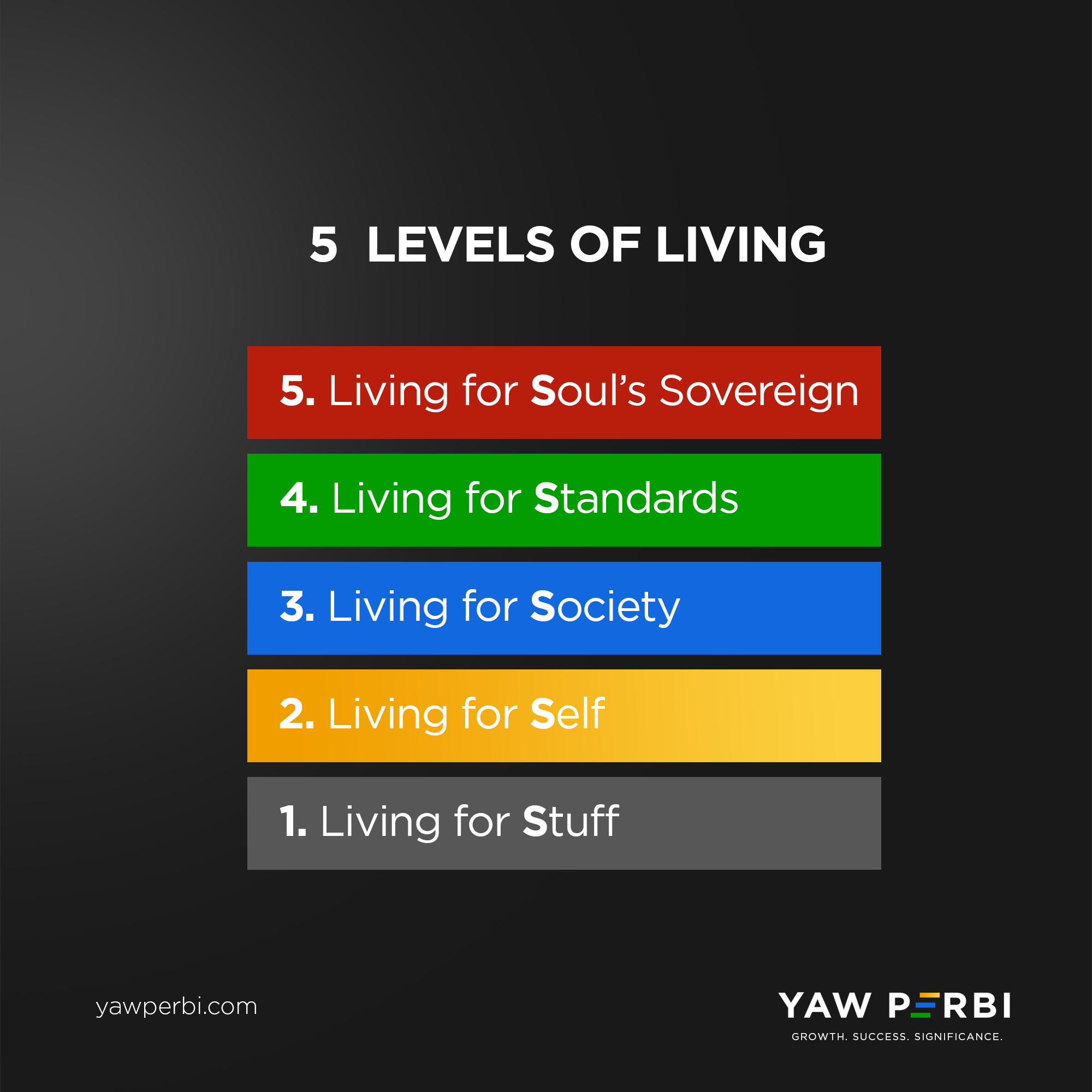
5 Levels Of Living
An Old But True Story on the Wall
One day, a king who had it all was confronted in the midst of a serious party he had thrown for his posse. His face turned white as wool when he beheld a disruptive sight: a dismembered hand had suddenly appeared and was writing on the wall pronouncing judgment on him (where the proverbial ‘the writing is on the wall’ comes from). He was wealthy, powerful and had connections but here he stood condemned under a gibberish clause. A later translation of the writing on the wall by a wise man revealed the following prophetic words: “You have been weighed and found wanting—you don’t weigh much.” Wow. Even a sovereign has a Sovereign who weighs everyone’s soul.
If the emperor’s wealth did not give him enough weight and his power was inadequate to exonerate him, there must be some things in life weightier and more powerful than others. And who determines the weights—ourselves, society, a sovereign? If there are levels of living I want to know.
A New and True CEO on the Block
A couple of weeks ago, I became friends with a CEO in Ghana l had never met before. In fact, the only reason l went looking for her was because the John Maxwell certified leaders in the country were seeking other significant leaders to speak at an annual John Maxwell simulcast in October, Live2Lead, and her name had come up from my Chief of Staff. We hit it off! Of course she is a beautiful person, smart, wealthy (she’s got stuff) but what excited me about her the most, which I later realized upon reflection made us connect so deeply and authentically, is that she is a Level 5 leader, living on the 5th floor.
l recognize that ‘5 Levels’ or ‘Level 5’ is used in different business contexts for different things. I have trained for John Maxwell for many years and he has a course I teach known as ‘5 Levels of Leadership.’ The ultimate leader operates at Level 5, where one’s influence is purely from respect of who you are and what you represent. Jim Collins, professor and author of ‘Good to Great’, also talks about the Level 5 leader as the executive who’s built enduring greatness through a paradoxical combination of personal humility and professional will. I am also using 5 Levels and Level 5 for different purpose. l have found that there are 5 levels of living:
- Living for Stuff
- Living for Self
- Living for Society
- Living for Standards
- Living for Soul’s Sovereign
1. LEVEL ONE—LIVING FOR STUFF
There are people who unapologetically live for stuff. They are the ones who say things like, “he who dies with the most toys (stuff) wins.”
By ‘stuff’ I mean tangible, living and non-living things, from those that meet our physiological needs (as outlined by Maslow like air, water, food, shelter, sleep, clothing and sex) to others beyond survival needs including big toys like luxury vehicles, bling, real estate. Be careful about the deceitfulness of stuff, especially of wealth.
People who live at this level would use and abuse themselves, others, ideals and due process and even God to get stuff. “Is life not worth more than what you will eat and drink?…” the greatest teacher there ever lived once rhetorically inquired. “Life is not defined by what you have, even when you have a lot.”
2. LEVEL TWO—LIVING FOR SELF
Elsewhere this greatest of gurus tells a story that illustrates both Level 1 and Level 2 living well:
There was once a rich man who had a bumper harvest. He was so thrilled, drew up warehouse expansion plans and said to his soul, “Self, you’ve done well! You’ve got it made and can now retire. Eat. Drink. Be Merry. Take it easy and have the time of your life!’“ Just then his soul’s Sovereign, God, showed up and said, “Fool! Tonight you die. And your barnful of goods—who gets it?”
So by Level 2, one has realized we eat to live and not live to eat. Although better than living for stuff, the Level 2 chap is living for a person, themself: me, myself, mine and I. While living for self may range from personal safety and health needs to employment (to put food on the table and change in the pocket), it really is a level of living where everything is about how anything and everything only promotes one’s personal well-being (physical, mental, emotional, social, spiritual) and ambitions. One gets even into social stuff only to the extent that it benefits oneself. This is self-help to the max. A scarcity mindset is abundant at this level of living.
Many leaders are unable to distinguish between self-care and selfish behaviour. Self-care is vitally important to be able to flourish and sustainably climb further up the ladder of life to higher heights, yet it is a life of not only personal success but also societal significance. If all the self-care is an end in itself then it has ended up as selfish. The object and subject in life at Level 2 is me, myself, mine and I. The Level 2 life is selfish living.
3. LEVEL THREE—LIVING FOR SOCIETY
This is living for the sake of others, people—the common good. It is living beyond me, myself, mine and I to considering the other—thou, they, them, thine. The greatest teacher who ever lived once said, “Greater love has no one than this: to lay down their life for their friend.” Even though this is an upgrade from living for one person (yourself) to several others, this is not always a healthy thing (we’ll save that for another day)..
Level 3 living begins a life of love beyond self to love as in belonging—friendship, intimacy, family, sense of connection—all the way to the esteem society bestows in the form of respect, status and recognition.
It is not an easy thing not to be selfish (Level 2), for even in apparently living at Level 3 people can use people—the very apparent act of living for society—still for their selfish ends in Level 2.
4. LEVEL FOUR—LIVING FOR STANDARDS
When Nelson Mandela faced trial for treason in April 1964, the words of his three-hour speech from the defendant’s dock epitomize the penultimate level of living: “I have cherished the ideal of a democratic and free society in which all persons live together in harmony and with equal opportunities. It is an ideal which I hope to live for and to achieve. But if needs be, it is an ideal for which I am prepared to die.”
Rather than life being about a living standard as an economic matter (a combination of wealth and services in Level 1), this Level 4 life is about living for standards, as in ideals, values and principles.
These standards and ideals are intangible values (unlike Level 1 where one values physical things) and even timeless, universal laws. These may include strength, freedom, and self-actualization (desire to become the most that one can be).
This is sagacious living, a life of enlightenment, like being a values-based leader and gunning for “the good society.”
It is portrayed as the discerning life of discerning people, living in rarefied air. This is the life many elites are envisaged to be living until scandals break out and we see through the charade that they were far lower on the rungs in reality.
5. LEVEL FIVE—LIVING FOR THE SOUL’S SOVEREIGN
I love Africa and have been so sick and tired of people thinking unless they traveled to the West they cannot make it. Despite the many opportunities to live, work or even study abroad, my Canadian-born wife and I turned a blind eye, resolutely living at Level 4 until one day our souls’ Sovereign called us up and sent us out with the following instructions: “Leave your country, your people and your father’s household and go to a land I will show you.” And so we did. First to Cote d’Ivoire for a year and then to Canada for the next dozen. And like William Borden, we too have had “No Reserves. No Retreats. No Regrets.”
Obedience to God is the highest level of living. Sometimes in living for the soul’s Sovereign one may still acquire stuff (Level 1), satisfy oneself (Level 2) or even please others (Level 3) and live out some cool values (Level 3) but make no mistake. Often, the only way to satisfy the soul’s Sovereign is to deny oneself, sacrifice the things of this world and eschew the applause of people.
Indeed, “What do you do when two high ideals clash?” is a Level 4 dilemma and that evaporates at Level 5 because what the soul’s Sovereign desires, dictates or even demands is what goes. No, religion per se is Level 4–a set of beliefs and values one lives by; even one’s notion of ‘God.’ Many Gen Zers say, “I am spiritual but not religious.” Even spirituality in itself would be Level 4 living. Level 5 living is having through one’s Level 4 spiritual quest discovered there is a sovereign One, the God of Heaven and all the earth, who has a good, pleasing and perfect purpose to be heeded.
Sure, there are many religions all claiming to have a corner on the Truth but I believe that anyone authentically seeking their soul’s Sovereign will eventually find Him (or be found by Him), when they seek with all their heart.
Conclusion
While one might find some correlation between my perceived 5 Levels of Living and Maslow’s Hierarchy of Needs, this is more. My classification goes way beyond the popular psychologist’s work. In fact, his peaks at my penultimate point. As mentioned in my introduction, if there are levels of living I want to know. Not only do I want to know so I can measure how I’m doing, I would like to know that I’m living my best possible life. Just like all dollars are dollars but there are denominations—a $5 bill isn’t the same value as a $100 one, every weight is a weight but there are milligrams and kilograms (even tons)—so are there levels in life. Will you live your best life? Check your weight, assess your level, in the eyes of your soul’s Sovereign. He still writes on walls.
Post Script
In the next blog, I’ll share what life on Level 5 looks like (in my coaching of several C-level executives I’ve found myself having to be a pastor in the marketplace. Even the best leaders need help to nurture their souls; denying it doesn’t take the reality away or render the need untrue).
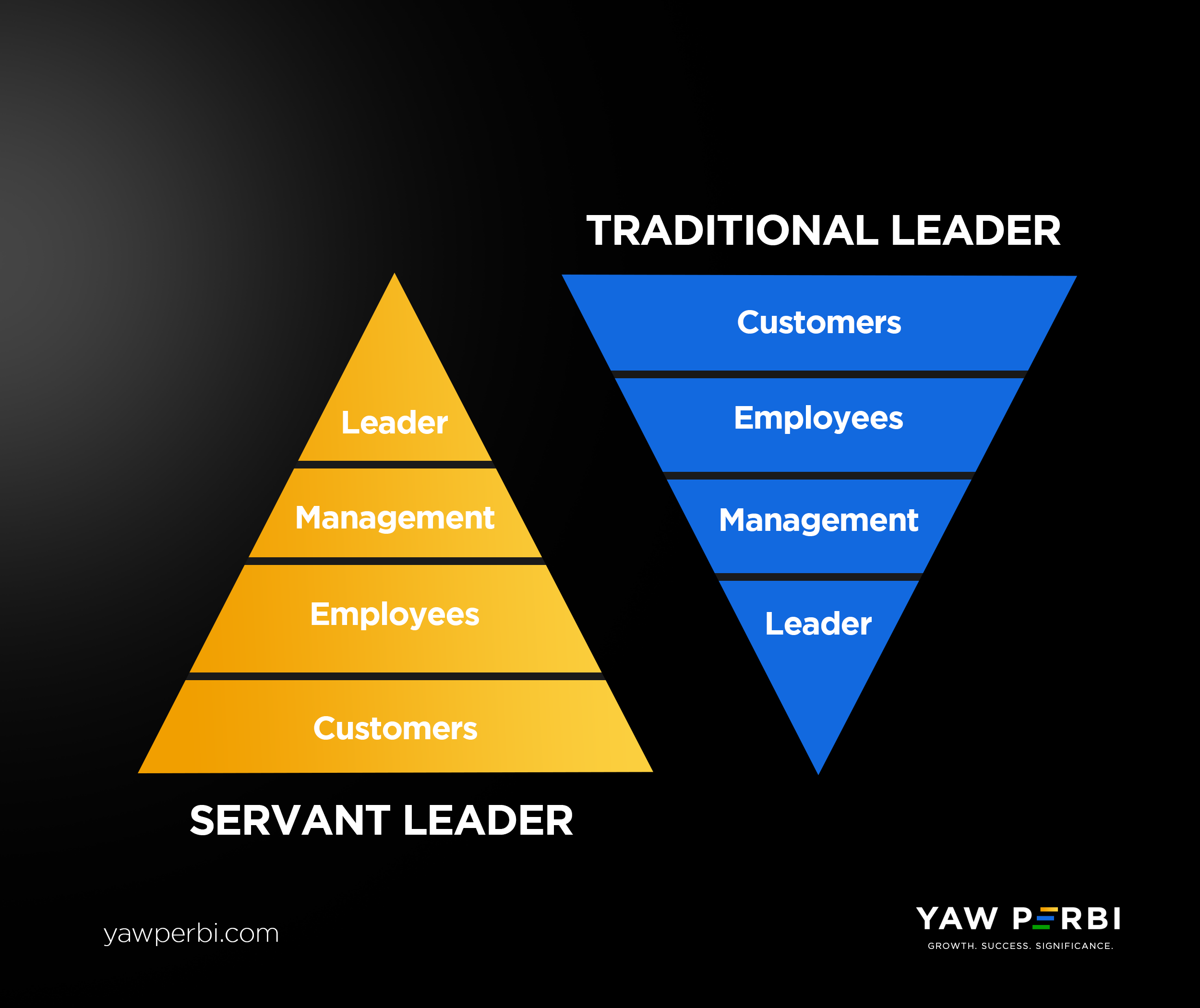
The World Needs More Servant Leaders, Irrespective of Whose Idea It Is
On Monday, we explored leadership theories over the last 200 years at Perbi Cubs Academy (nickname for our Staff Leadership Development program in collaboration with YAW PERBI Executive Education). That Servant Leadership is considered a 1990’s theory never ceases to tickle me.
Growing up in a Christian home I learnt Servant Leadership at a tender age from the life and lips of Jesus of Nazareth. Class act: It was just before the Passover Festival. Jesus knew that the hour had come for him to leave this world and go to the Heavenly Father, God. Having loved his own who were in the world, he loved them to the end. Jesus knew that the Father had put all things under his power, and that he had come from God and was returning to God; so he got up from the meal, took off his outer clothing, and wrapped a towel around his waist. After that, he poured water into a basin and began to wash his disciples’ feet, drying them with the towel that was wrapped around him. (paraphrase of portions of John 13)
When he had finished washing their feet, he put on his clothes and returned to his place and these were his classic words: “Do you understand what I have done for you? You call me ‘Teacher’ and ‘Master,’ and rightly so, for that is what I am. Now that I, your Master and Teacher, have washed your feet, you also should wash one another’s feet. I have set you an example that you should do as I have done for you. Very truly I tell you, no servant is greater than his master, nor is a messenger greater than the one who sent him. Now that you know these things, you will be blessed if you do them.”
Earlier, in response to jostling over position and power among his inner circle, he had contrasted ‘Traditional Leadership’ with ‘Servant Leadership’ and called them to a higher standard: the latter. He told them, “In this world the kings and great men lord it over their people, yet they are called ‘benefactors’ or ‘friends of the people.’ But among you it will be different. Not so with you! Those who are the greatest among you should take the lowest rank, and the leader should be like a servant.”
Through history, many many men and women—including Mahatma Gandhi, Martin Luther King Jnr., Florence Nightingale, Mother Teresa and Nelson Mandela— have exemplified Servant Leadership. This isn’t just altruistic spiritual and sociopolitical talk. Today, professors like Jim Collins (of ‘Good to Great’ fame) speak of the power of such ‘Level 5’ Servant Leaders in business and companies like Southwestern Airlines have benefited from even the commercial value of Servant Leadership.
Two millennia after Jesus, Robert Greenleaf makes Servant Leadership wildly popular and gets credit in the leadership literature for it. Fascinating. Even more intriguing is Greenleaf’s claim that “the idea of the servant as leader” came to him from German Hermann Hesse’s 1932 novel, ‘Journey to the East.’ I wonder where Jesus got his idea and practice of Servant Leadership from.
That was Monday. The musings continued unabated. Then what do I discover is this Thursday morning’s exhortation from the Bible app? “Do nothing out of selfish ambition or vain conceit, but in humility consider others better than yourselves. Each of you should look not only to your own interests, but also to the interests of others.” Those are the words of the lawyer-turned-preacher, Paul, to his audience in the city of Philippi.
The message, to me at least, is clear: just do it! Lead like a servant; serve as a leader.

3 Ways People Buy Into Leadership
A young aspiring writer once asked me a question I had never thought of. As a published author–at the time I had just one book to my credit, I think–he asked me, “When you published your first book did you have no concern at all that it might not sell?” Frankly, that possibility had not even crossed my mind, but now that he asked I began to soul search: “Really, what if it never sold?” The lad’s concern is a question of buy-in. In other words, how sure was I that people would buy into me or my message to part with their hard-earned cash for copies. The fact is, within six months I had recouped all my initial borrowed money, paid off my investor and had recurrent capital to keep going. And I haven’t stopped, a dozen-and-a-half books later. Have I just been ‘lucky’?
Another question related to buy-in I recently pondered was during the nineteenth anniversary of the global holistic leadership development organization I founded as a medical student in 2003. I still remember that May Day, workers’ holiday in Ghana (our version of Labour Day), when I gathered eight of my friends and cast a vision of an organization that would inspire and empower young people to discover their God-given purpose and reach their full potential—and that one day we would be international. Somehow they bought into it–was it me, the message, the vision? For weeks we brainstormed until we came up with the name ‘The HuD Group’, then for several more months that followed we set up administrative structures and started running programmes and projects. Today, we have representation and active work in over two dozen countries on all continents with impact in over sixty nations.
ALL ABOUT BUY-IN
These two stories beg the question, what does it take for people to buy into leadership? Almost always, the news from the two countries I’ve lived in for over a decade each and love are replete with stories of government leadership attempting to implement one policy or the other and experiencing resistance or lack of buy-in. In Canada it often is wrangling over oil and gas pipelines. Two of the hottest buy-in issues in Ghana right now have been the passage of a levy on electronic money transfers (especially mobile money) and a not-so-transparent process surrounding the construction of a national cathedral.
With the news as a backdrop, the following precious leadership thoughts have evolved from a confluence of three supposedly independent situations I personally experienced within days of each other. First, during a very enlightening webinar, the trainer, a fellow catalyst with the Lausanne Movement, had mentioned that most people who might not trust a person enough to follow them can at least trust a well-laid out process. Then a couple of days later I was thinking through the incredible leadership feat of the diasporic Jewish cup-bearer-turned-city-builder Nehemiah. In preparation for Lausanne leaders meetings in New York City, I had begun to re-read that Hebrew Bible classic case study in leadership and was intrigued by how one man’s burden became a whole nation’s blessing. Thirdly, this was the same weekend I was to ‘walk the stage’ to accept my Covid-delayed Master of Arts in Global Leadership degree from Fuller Theological Seminary. That’s my mentor Dr. John C. Maxwell’s alma mater as well, and I was pondering what John calls “the Law of Buy-in.”
THE 3 P’S IN THE LEADERSHIP EQUATION
From my academic learnings and practical experience, I have come to appreciate that there are three (3) main routes to leadership buy-in. When I speak of three ways people buy into leadership, I suppose most people would read that as three ways people buy into a leader/leaders but no. Leadership is a relational process with three key cardinal points: the Person of a leader, the People being led and the Purpose being pursued.
More often than not, the leader–who is a responsible Person that serves and influences People to achieve a shared, noble Purpose–is the one who feels the burden of a need, like in the case of Nehemiah in the fifth century B.C. Everyone knew that the Jewish remnant that had survived the exile was in “great trouble and disgrace” and that “the wall of Jerusalem was broken down and its gates charred to coal.” Somehow this burdened Nehemiah profoundly. It is such deep burdens that lead to burning desires which result in vivid visions (purpose), like an ambitious 52-day-city-wall-rebuilding capital project for those in Nehemiah’s day.
Then from the Purpose is a Plan/Process to which people are mobilized who then (hopefully) catch the same burden, develop a similar desire and apprehend the same vision. This is what I call the Leadership Buy-in Scheme:
- People buy into the Purpose (Vision)
- People buy into the Person (Leader)
- People buy into the Process (Plan)
- Buying into the Purpose
In my opinion, the most sustainable mobilization of People to join a cause is when they can get it right from the burden phase, to the desire stage and then catch the vision or Purpose. Some cut to the chase and just buy into the desire or even more direct, straight into the vision/Purpose. These routes work too but from over three decades of being in the leader development space I find nothing beats starting from two blocks back. The primary way people get mobilized to a cause is to buy into the burden (A1), then the desire (A2) and then the vision (A3).
- Buying into the Person
The entire leadership buy-in scheme revolves round the Person of the leader. Often, (s)he is the one People are mobilized to buy into, almost not caring about the Purpose or Process. While I surmise this pertains mostly to collectivist cultures, even some from individualistic cultures swear by this as the number one way people are mobilized to a cause. In fact, for John C. Maxwell, this is the Law of Buy-in. As the fourteenth law in The 21 Irrefutable Laws of Leadership, Dr. Maxwell states that “people first buy into the leader, and then into their vision.” So in other words, if you want others to follow your vision (Purpose), you need them to, first and foremost, follow you—their leader.
While there may be a lead Person people buy into, they might very well also buy into other People the leader has surrounded himself with or already galvanized.
- Buying into the Process
So back to the beginning, the initial webinar statement that precipitated all these copious leadership thoughts. We were discussing a context where someone was attempting to lead a network of other organizations to tackle a big dream that neither one of their entities, no matter how big, could handle alone. Remember that the presenter had stated–he didn’t come across as postulating, he was stating a principal principle–that people trust a Process/Plan even before they trust a Person.
Having lived on both sides of the Atlantic for at least more than a decade each, I see the Two-Thirds world (Africans, Latin Americans and Asians) more likely to buy into the Person first and and the Western world generally inclined towards trusting the Process first.
Conclusion
So the three ways people buy into leadership are via the Purpose, Person and/or Process. We could also say buying into the Message, Messenger and the Medium (why else do you think advertisers pay huge sums of money to have influences be their messengers?). At the end of the day, a leader requires a team to make the dream. No great vision can be accomplished by just one (wo)man, no matter how great they are. The best mobilized people for a cause is when they buy into the Purpose, the Person and the Process–all three. Even for the Purpose, it’s best when they first feel the burden and grow it into a desire before it becomes a vision to pursue rather than just plugging straight into the vision. People buying into two of the three P’s is not so bad either but how could a two-legged stool ever rival one that has three solid legs? Aim for the triple buy-in: the Purpose, the Person and the Process.

